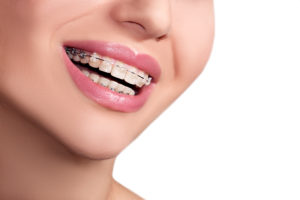 Life with braces doesn’t have to be a chore. Whilst some people worry about being able to clean their teeth properly whilst wearing a brace, it doesn’t have to be difficult. As long as you are meticulous in your dental hygiene, you shouldn’t suffer any negative effects.
Life with braces doesn’t have to be a chore. Whilst some people worry about being able to clean their teeth properly whilst wearing a brace, it doesn’t have to be difficult. As long as you are meticulous in your dental hygiene, you shouldn’t suffer any negative effects.
Once you’ve been fitted with your braces, you should pay a visit to your hygienist, who will teach you how to clean around them effectively. It can be helpful to use floss threaders or interdental brushes to carefully clean beneath the brace wires and between the teeth.
Staplehurst Dental Practice in Kent offers discreet tooth straightening for adults and teenagers, using both fixed braces and removable aligners. In the case of a removable appliance you don’t need any particularly special hygiene techniques – just remove the appliance, clean it, and brush and floss your teeth as normal.
It’s important to clean your teeth after every meal whilst having orthodontic treatment. You should wait approximately an hour after eating so that you don’t rub sugars or acids into the teeth, and should keep a toothbrush and toothpaste on you at all times.
Watching what you eat is important whilst wearing braces. Hard foods such as carrots can damage the brace, whilst string foods such as green beans can get trapped in them. You can still enjoy your five a day by boiling your vegetables instead of eating them raw, or by cutting them into small pieces. Some sticky, sugary foods such as caramel or toffee should be avoided entirely during treatment.
If you play any sport that involves contact or fast-moving objects – rugby, netball, or cricket, for example – you should use a properly fitted sports mouth guard with fixed braces. Whilst it is generally safe to remove aligners and replace them with a mouthguard during a match, you must put them back in straight afterwards.
Some brass and woodwind musicians struggle for a short while after their braces are fitted, but in most cases it doesn’t take long to adapt. Instruments such as the clarinet or bassoon usually don’t require too much alteration of technique, whilst trombone and trumpet players may find they struggle to hit the high notes at first.

